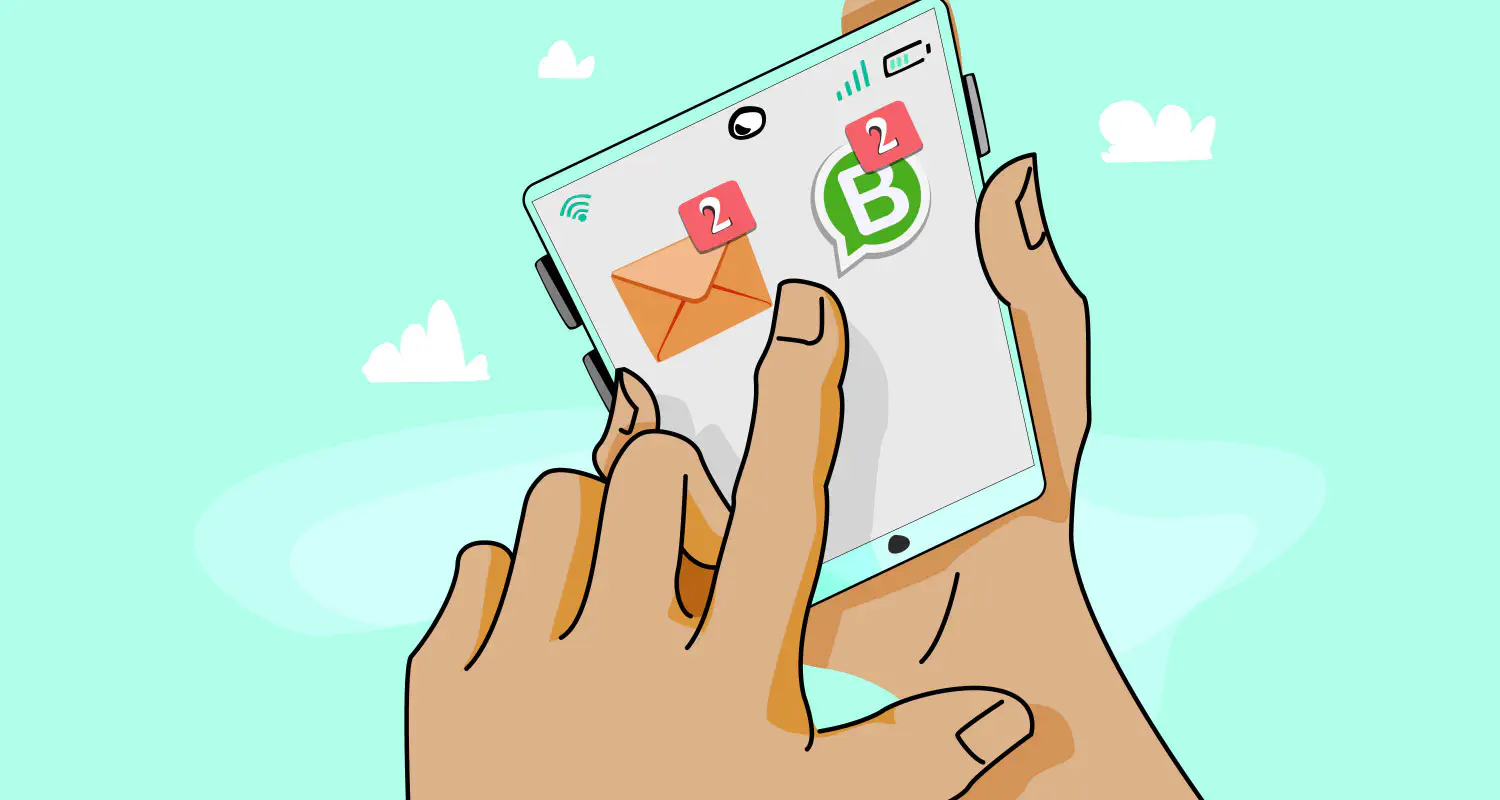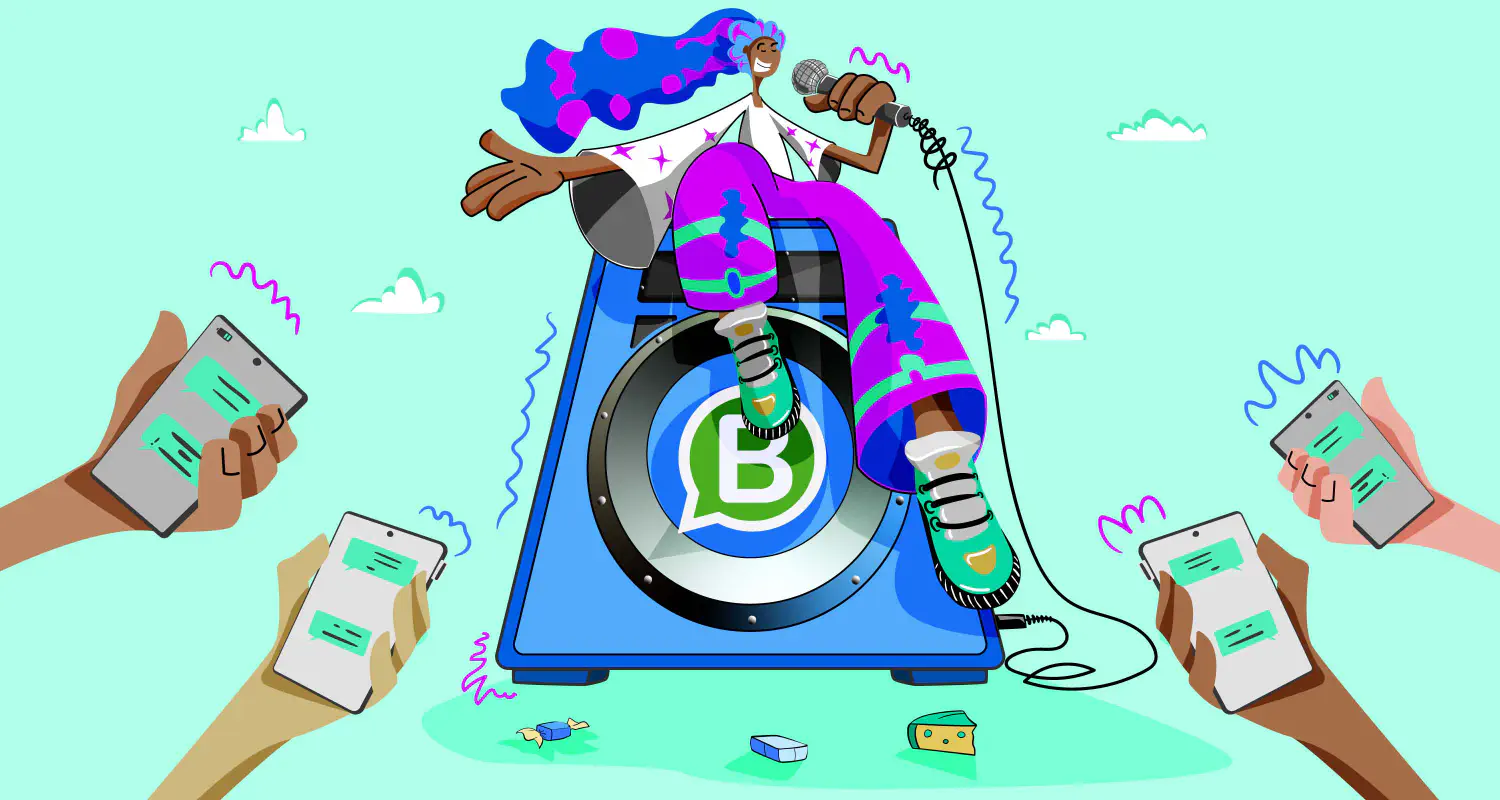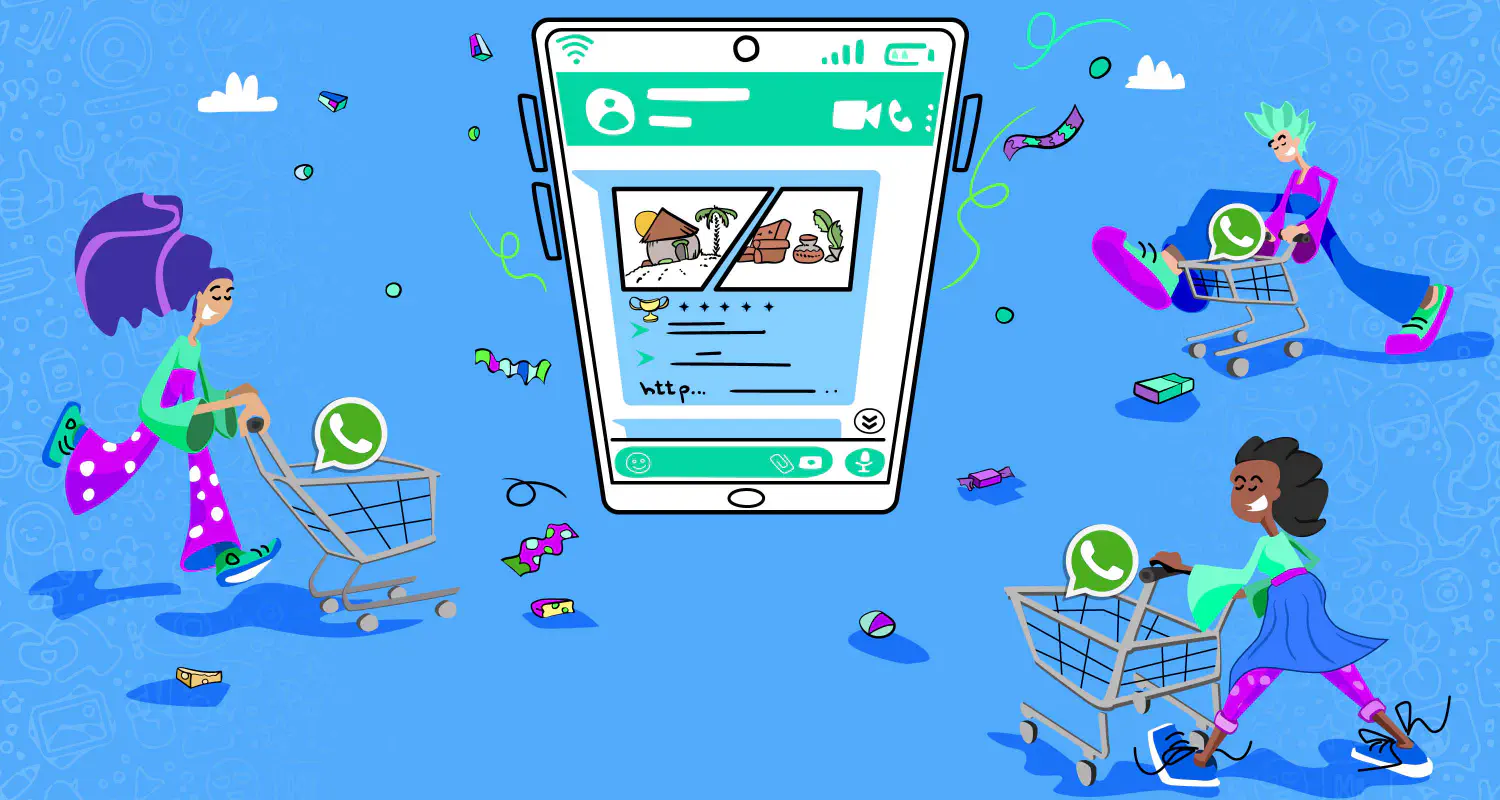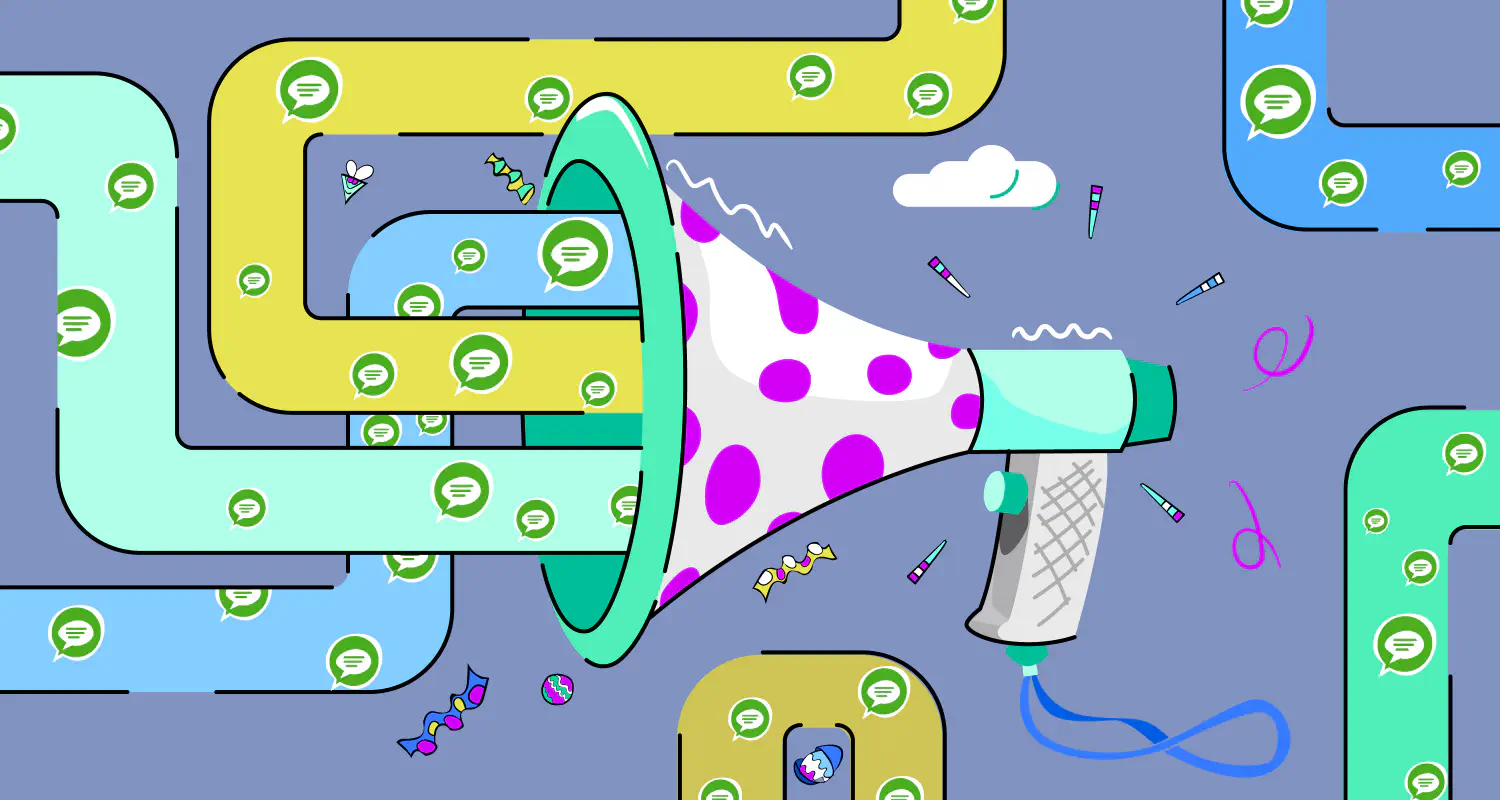WhatsApp Marketing vs Email Marketing: What Converts Better?

What converts better, email marketing or WhatsApp marketing?
Nowadays reaching your customers effectively is easier than ever. The issue that businesses face is that they have too many options for reaching out to customers, and choosing the best option is key to having high conversion rates.
Should you rely on email marketing, a tried-and-true method for delivering detailed, targeted messages, or is using WhatsApp for marketing the better choice with its real-time communication and unbeatable open rates?
Both channels have their strengths, but which one will drive more engagement and conversions for your business?
Who will win this debate and become the prominent channel for marketing?
In this article, we’ll break down the key differences between email and WhatsApp for marketing, exploring their advantages and disadvantages to help you make the right decision. Let’s get started!
What is Email Marketing?
Email marketing is a form of digital marketing that involves sending personalized email sequences and campaigns as a way to promote products and offers to your customers. It’s a time-tested method used by businesses to build relationships with customers, promote products or services, and drive engagement. Email marketers rely on these features to make the most out of the marketing campaign:
Segmentation & personalization
Customer segmentation is all about dividing your email list into segments based on criteria like demographics, behavior, or preferences. By personalizing the content to different segments, email marketers can ensure their emails are more engaging and relevant.
Email marketing software or service providers allow you to craft personalized messages to every segment of the email list easily.
Automation
Email marketing tools allow businesses to set up automation, such as welcome emails, abandoned cart reminders, and follow-up sequences. When a set criterion is met or an event is triggered these automation flows start instantly, making it easier and faster to send emails to customers at the proper time.
Analytics
Detailed analytics provide insights into campaign performance, including metrics like open rates, click-through rates, and conversion rates. This data helps businesses optimize their strategies and improve future campaigns.
Advantages of Email Marketing
Using email marketing offers several benefits. Let me now explore some of these benefits:
1. Established and reliable
Email has been an established way of doing digital marketing for years. Its reliability and widespread use make it a trusted method for reaching customers.
2. Advanced targeting
Email marketing platforms offer robust segmentation and personalization capabilities. This helps businesses to target specific groups with relevant content.
3. Measurable results
Email marketing provides detailed analytics so that companies can track performance metrics and make data-driven decisions.
4. Cost-effectiv
Email marketing is generally a cost-effective channel compared to other marketing channels. Most email marketing tools offer scalable pricing based on the number of subscribers and features required.
Disadvantages of Email Marketing
Here are some of the disadvantages of using email for your marketing campaigns that you have to consider:
1. Declining open rates
Email open rates have been decreasing due to crowded inboxes and spam filters. On average, open rates are only 20% impacting the effectiveness of email campaigns. Emails can end up in spam folders or be blocked by email providers, which can hinder deliverability.
2. Competitiveness
Most of us have hundreds even thousands of unread emails! This makes it harder to stand out in a crowded inbox like that. Many of these emails are ignored by customers duo to the competitiveness in their inbox, which makes it harder for brands to stand out.
3. Less instant engagement
Unlike real-time messaging platforms, email lacks the immediacy that some consumers prefer for quick interactions and responses.
4. Resource intensive
Crafting engaging emails requires significant effort in design and content creation. This can be resource-intensive, especially for businesses with limited marketing teams.
What is WhatsApp Marketing?
Using WhatsApp for marketing is a strategy that involves using the WhatsApp messaging app to communicate with customers in real time. Companies can use the WhatsApp Business app or the WhatsApp Business API to communicate with customers through personalized messages, send promotional content, and offer customer support. WhatsApp marketing uses various tools and strategies to maximize the effectiveness of your marketing campaigns:
Instant messaging
Provides immediate communication, allowing businesses to respond quickly to customer inquiries and engage in real-time conversations.
Rich media sharing
Supports a wide range of media formats, including text, images, videos, and voice messages. These media formats cannot be sent using emails, for that we have to use WhatsApp.
Interactive tools
Includes features such as polls, quick replies, and buttons to engage users more effectively and simplify interactions.
Advantages of WhatsApp Marketing
WhatsApp has grown in popularity as a marketing platform due to its numerous benefits. Here are a few examples:
1. High engagement rates
WhatsApp boasts an impressive open rate of around 97%, significantly higher than email. This high engagement rate is due to the platform’s personal and immediate nature. WhatsApp also has a whooping 45-60% click-through rate! That is significantly higher than emails, which have a click-through rate of only 20%.
2. High reach
WhatsApp is used daily by 2.7 billion active users worldwide. This app has a wide reach that shows no sign of slowing down, and it has become part of everyday life for billions of people. With that kind of reach, you have an unparalleled opportunity to engage with a huge audience.
3. Real-time communication
WhatsApp offers real-time messaging capabilities, meeting the modern consumer’s expectation for rapid responses and interactions.
4. Enhanced security
WhatsApp features end-to-end encryption, ensuring that only the intended recipients can read the messages. This level of security is particularly important for handling sensitive information.
Disadvantages of WhatsApp Marketing
While WhatsApp is great for marketing, it’s not all sunshine and rainbows. Here are a few disadvantages to using WhatsApp in marketing:
1. Less formality
The informal nature of WhatsApp may not be suitable for all types of marketing messages, particularly those requiring a more professional tone.
2. Resource requirements
Implementing effective WhatsApp marketing may require additional resources, including third-party tools for automation and compliance, which can be a consideration for some businesses.
3. Zero traditional advertising
Although it has a wide reach, WhatsApp doesn’t allow brands to pay for traffic like Facebook or Instagram. It has zero option for a banner ad, sponsored messages, or any type of traditional paid advertising.
Email vs. WhatsApp for Marketing: A Summary
To help you decide which platform might be best for your marketing needs, here is a comparative summary of email and WhatsApp marketing:
| Aspect | ||
|---|---|---|
| Open Rate | ~99% | ~20% |
| Click-Through Rate | ~45-60% | ~2.3% |
| Cost | Free for app; pay-per-conversation for API (plus provider fee) | Generally low (plus software provider fee) |
| User Base | 2.7 billion monthly users | 4 billion daily users |
| Security | End-to-end encryption | Vulnerable to spam; service provider access |
| Interactive Features | Includes polls, buttons, and multimedia attachments | Limited to links and replies |
Conclusion
When choosing between WhatsApp or Email to run your marketing campaigns, it’s essential to consider your audience’s preferences and the nature of your communication. Email marketing remains a reliable choice for formal, long-form content and advanced segmentation, making it effective for detailed updates and targeted campaigns.
However, WhatsApp marketing offers a level of immediacy and engagement that email struggles to match. With its real-time messaging, high open rates, and rich media features, WhatsApp allows you to connect with customers in a more personal, dynamic way. This makes it especially effective for quick responses, and building closer customer relationships.
Frequently Asked Questions
Learn more
If you'd like to learn more about how WhatsApp can help you grow your business, please reach out to us on WhatsApp at +13024070488 (Click to chat now).
We also offer a free consultation session where we review your use case, answer any questions about WhatsApp, and help you build a strategy to make the best out of the platform. Book a call with us here. We'd love to speak with you:
Book a call: Europe, the Middle East, and Africa
Book a call: LATAM
Curious about Rasayel? Schedule a demo today.

Omar Nabil, a former programmer, discovered his passion for writing while working on websites. Combining analytical thinking with creativity, he crafts brand stories that emotionally resonate and inspire action.





